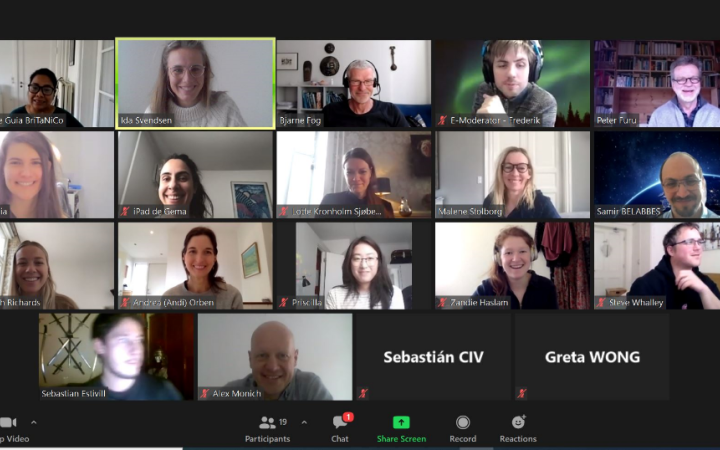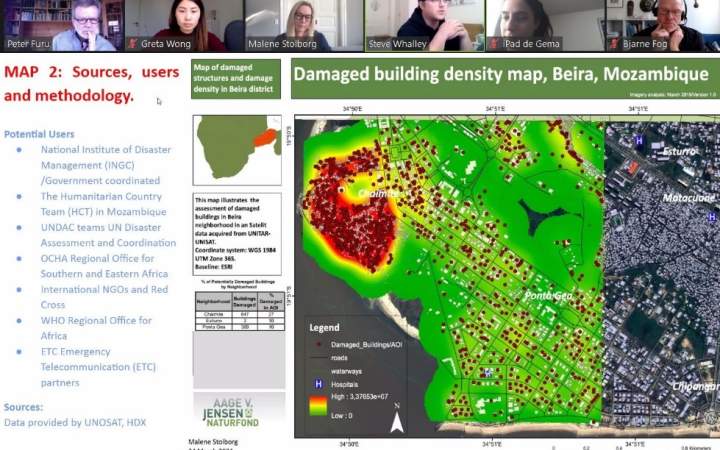31 March 2021, Copenhagen, Denmark - UNITAR-UNOSAT and the University of Copenhagen co-organized and delivered a 3-week Masters level course entitled “Geo-information in disaster situations” from 8 to 26 March 2021. The beneficiaries were fourteen University of Copenhagen students registered in the Master of Disaster Management programme. Instruction during the first week focused on an introduction to remote sensing, data analysis, cartographic modelling and essential software applications and was delivered by the University of Copenhagen.
The second week was helmed by UNOSAT and focused more on technical applications, including flood analysis using Google Earth Engine, gathering geospatial data for emergency response, flood impact analysis, post disaster damage assessment and thematic mapping. The week wrapped up with a final GIS assignment featuring a disaster scenario and Q & A session and spilled over into the final week, ending with a presentation by participants.
Students were very engaged despite exceptional circumstances resulting from the COVID-19 pandemic. Indeed, UNOSAT modified its preferred face-to-face delivery method to instead deliver modules remotely via Zoom to students who were spread across the globe. This approach allowed to successfully adapt to the current circumstances. Instructors were able to convey relevant information and cover all of the modules and students were given time for self-study with tutorials and quizzes to support the learning process. A big thanks to Copenhagen University's IT service for enabling the course to unfold smoothly.
Students were satisfied with the quality of the course, one of them even stating that, “The course should be part of the core courses of the MDMA (Master of Disaster Management) programme” rather than an elective. A few students had to juggle technical challenges, but found the course valuable nonetheless: “This course was remote (COVID) and many of us were using a remote desktop at KU in addition to the course being online. It has been a challenge but the course was interesting, albeit extra stressful at times”
Peter Furu, Associate Professor and Head of Studies at the Department of Public Health of the University of Copenhagen had this to say about UNOSAT’s role:
“We appreciate your great contributions to making our 2021 course a success even though that we were confronted with new and more challenging circumstances for running the course this year”.
All 14 participants received certificates from UNITAR and preliminary evaluation results show that by the end of the course, participant confidence in their knowledge and skills with respect to the learning objectives rose over six-fold versus before the course. On average, 79% of survey respondents found that the information presented during the course was new to them, useful for their academic careers and they confirmed that they will use the information acquired. They were also nearly unanimously pleased with the performance of the facilitators. All respondents agreed that the course was useful overall and that they would recommend it to a colleague.
We very much look forward to contributing to the 12th edition of this longstanding partnership next year!



